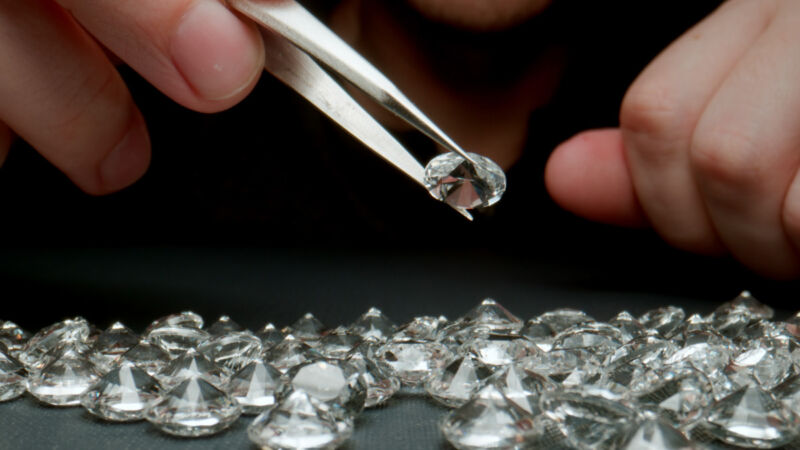
In an age when you can get just about anything online, it’s probably no surprise that you can buy a diamond-making machine for $200,000 on Chinese eCommerce site Alibaba. If you, like me, haven’t been paying attention to the diamond industry, it turns out that the availability of these machines reflects an ongoing trend toward democratizing diamond production—a process that began decades ago and continues to evolve.
The history of lab-grown diamonds dates back at least half a century. According to Harvard graduate student Javid Lakha, writing in a comprehensive piece on lab-grown diamonds published in Works in Progress last month, the first successful synthesis of diamonds in a laboratory setting occurred in the 1950s. Lakha recounts how Howard Tracy Hall, a chemist at General Electric, created the first lab-grown diamonds using a high-pressure, high-temperature (HPHT) process that mimicked the conditions under which diamonds form in nature.
Since then, diamond-making technology has advanced significantly. Today, there are two primary methods for creating lab-grown diamonds: the HPHT process and chemical vapor deposition (CVD). Both types of machines are now listed on Alibaba, with prices starting at around $200,000, as pointed out by engineer John Nagle (who goes by “Animats” on Hacker News). A CVD machine we found is more pricey, at around $450,000.
Not a simple operation
While the idea of purchasing a diamond-making machine on Alibaba might be intriguing, it’s important to note that operating one isn’t as simple as plugging it in and watching diamonds form. According to Lakha’s article, these machines require significant expertise and additional resources to operate effectively.
For an HPHT press, you’d need a reliable source of high-quality graphite, metal catalysts like iron or cobalt, and precise temperature and pressure control systems. CVD machines require a steady supply of methane and hydrogen gases, as well as the ability to generate and control microwaves or hot filaments. Both methods need diamond seed crystals to start the growth process.
Moreover, you’d need specialized knowledge to manage the growth parameters, handle potentially hazardous materials and high-pressure equipment safely, and process the resulting raw diamonds into usable gems or industrial components. The machines also use considerable amounts of energy and require regular maintenance. Those factors may make the process subject to some regulations that are far beyond the scope of this piece.
In short, while these machines are more accessible than ever, turning one into a productive diamond-making operation would still require significant investment in equipment, materials, expertise, and safety measures. But hey, a guy can dream, right?

